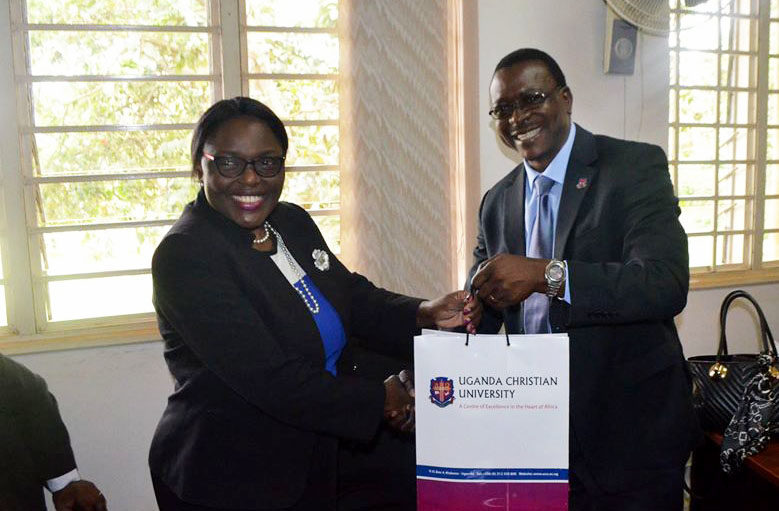
Photo | Courtesy
Court of Appeal Justice Catherine Bamugemereire, who has led the Commission of Inquiry into Land Matters for the past 30 months, on Wednesday opened up about the considerable positive impact that Uganda Christian University (UCU) has had on the country.
Bamugemereire, who graced our 2019 Annual Law Symposium, applauded UCU for its Christian values and holistic approach in training students for the nation and the world over.
” I find UCU to be a university that brings out a whole person. A person is mentored, not just academically but also spiritually,” she observed.
“They try to Keep up the values that are good for the society. This university is an opportunity for this country to actually help leaders that are transformational,” Justice Bamugemereire maintained.
The event had its theme as; Law, Justice and Development:- Human Rights, Legal Technology and the Land Question.
Hon. Dr. Miria Matembe, Counsel Alice Namuli Blazevik, Hon. Sylvia Rwabogo among others attended the Law Symposium.
Away from this, it should be noted that the Commission of Inquiry into Land Matters will wind up its work on November 9.
Speaking to media sources, Justice Bamugemereire said they that together with her team, they will not seek to extend their tenure.
“What is being considered for extension time is time to write the report before we hand over,” she said.
The commission disclosed that 7,799 complaints were received and 2,700 of them filed by people, who were threatened with evictions based on court orders. 3,400 complaints were referred for mediation, according to statistics at the Commission, while 110 cases were handled through public hearings.
“When the Commission commenced this task, we did not envisage that we would be required to address people’s disputes. We were, however, compelled to run clinics and encourage mediation which has registered outstanding outcomes,” Justice Bamugemereire said.
Citing shortage of funds, the Commission’s lead counsel, Mr Ebert Byenkya, said about 3,000 complaints remained unresolved and “will form the basis for the next course of action.”
“The funding was cut and affected investigations and it was not coming in time. We also had to cut down staff. It affected our capacity to investigate land matters and in some instances investigators encountered friction with people they were investigating, which affected the turnaround of cases,” he said.

